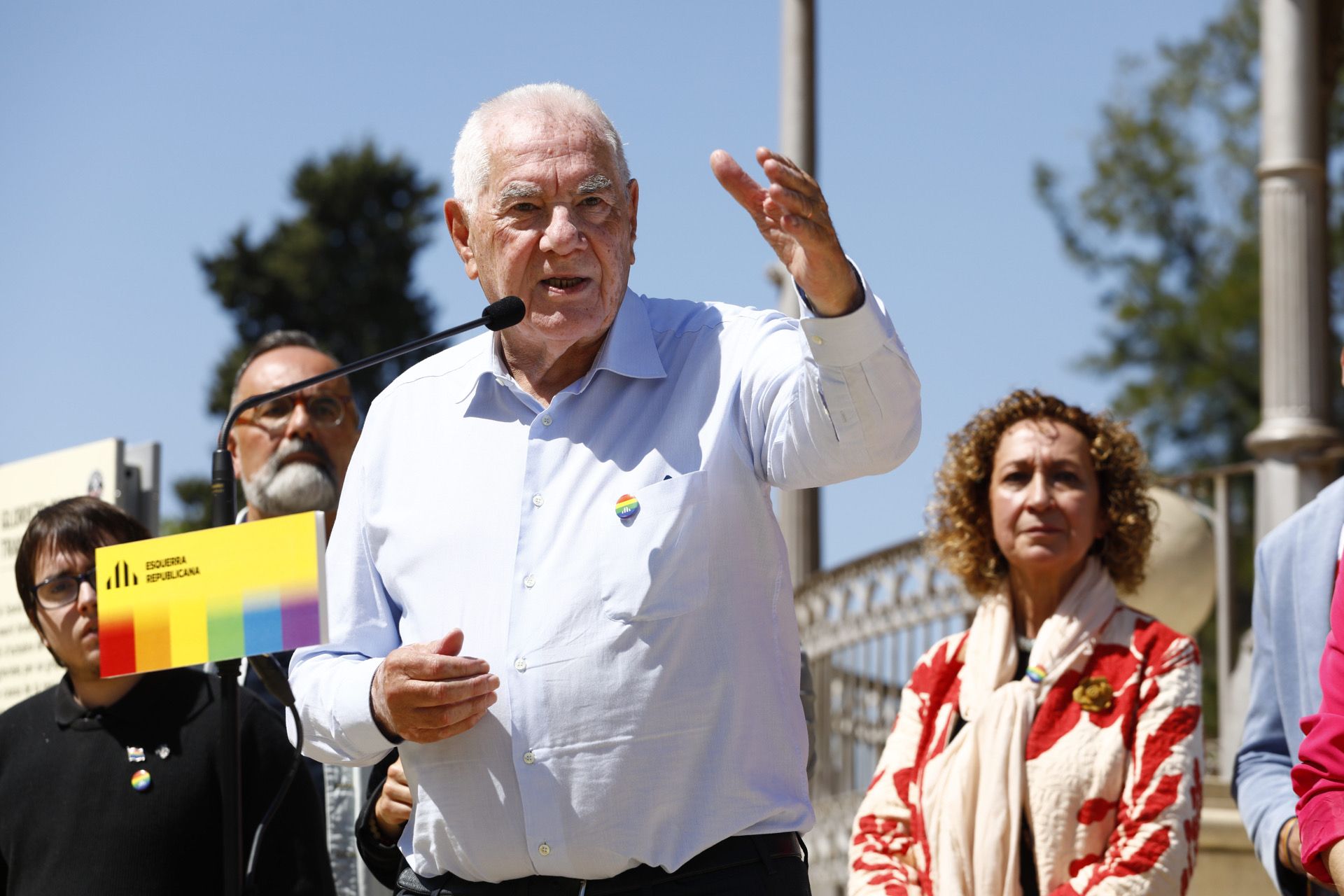The city of Barcelona cannot be characterized as a particularly welcoming territory for the Catalan Republican Left (ERC) when it comes to the electoral race for the municipal government. Until Ernest Maragall won the last elections with his ten councillors and 21.4% of the votes, the Republican ceiling in the Catalan capital had been the five councillors it achieved in 2003 with Jordi Portabella, a total matched in 2015 under Alfred Bosch. Until 2019, ERC had never achieved victory in any district of the city or in any of the 73 neighbourhoods of Barcelona.
-
All our coverage in English of the 2023 Municipal Elections
-
Ernest Maragall: all our articles in English on the ERC candidate
Evolution of % of votes won by parties in Barcelona municipal elections (1979-2019)
However, four years ago, with Together for Catalonia (Junts) in free fall and the Catalan Socialists (PSC) having been knocked out by the independence process, Maragall established himself as the alternative to Ada Colau, and won in the districts of Les Corts and L'Eixample, until then major sources of votes for the centre-right Catalanist party CiU. The ERC candidate achieved victory in 29 of the city's 73 neighbourhoods, also winning territories from Barcelona en Comú such as those of Barceloneta and Sants, four out of the five neighbourhoods in Gràcia, and others such as La Sagrera, Sant Martí, Congrés, Navas and Camp de l'Arpa. But at the end of the day, victory at the polls did not enable Maragall to occupy the mayoral office, because Ada Colau surprised him by making a pact with not only the PSC but also the anti-independence Ciudadanos candidature under Manuel Valls.
% of votes won by ERC in the 2019 municipal election, district by district.
Alternative to Colau
This year on May 28th, Maragall, aged 80, is trying again. Although the polls seemed to be smiling on him in 2022, the emergence of Xavier Trias as the Junts candidate has upset the balance and forced the ERC candidate to review his strategy. Maragall has fallen from the leading positions in the race where he had been entrenched for the last four years and the polls indicate that it is now Trias who is the flag bearer for those who seek to replace Colau, a change which, according to the polls, two out of three Barcelona residents would like to see. Although those in charge of the Maragall campaign affirm that, after the initial blow had been delivered, ERC's vote projections are recovering, the poll results are stubborn and, for the most part, show little evidence of such a turnaround.
Republican sources who are familiar with the recent evolution of the party in Barcelona blame this situation on ERC's strategy of alliances in Catalonia and Spain, which they say has prevented Maragall from distancing himself from the city government of the Comuns and the PSC. They notes that ERC signed up Maragall as a candidate in September 2018, eight months before the 2019 elections, when the-then municipal leader of the Republicans, Alfred Bosch, had already been ratified in primaries with the support of 87% of members and when the polls - including the municipal barometer - had been pointing to an ERC victory for months. They emphasize that in municipal circles those positive ratings were attributed to the strategy that Bosch had maintained, of open confrontation with Colau, even at a time when ERC was already committed at higher levels of government - both Catalan and Spanish - to making deals with the Socialists and the Comuns.
ERC's strategy
Likewise, they point out that Maragall's attempts to distance himself from Colau - which could have been expected to be even stronger considering how the BComú mayor had brushed aside the election winner - were also weakened by the evolution of the Catalan political panorama, in which the Pere Aragonès-led government became more dependent on the votes of the Comuns and the PSC. This was evident in Barcelona city council's 2022 and 2023 budgets, which the Republicans allowed to pass thanks to their abstention, at the same time as the Catalan government's own budget was being negotiated in Parliament with the support of the Comuns group there. According to these sources, the situation affected Maragall's ability to present himself as an opposition ready to dethrone Colau, just at the moment when Trias burst onto the scene declaring a head-on challenge to the mayor.
% of votes won by ERC in the 2019 municipal election, broken down by neighbourhoods.
The objective of Maragall's campaign is now to try to regain ground, win back the status as the real alternative to Colau and collect votes in all possible areas. The party strategists affirm that ERC has an area of support overlap with all three of the other main contenders - Junts, Comuns and PSC - and that it will appeal to all voters, "from Nou Barris to the uptown areas of Barcelona". But it is not at all easy and Maragall is being forced to seek confrontation with his rivals to reposition himself in the campaign. After he affirmed on Monday that he would not make a post-election pact with the PSC, a new attack on Wednesday against Jaume Collboni's alleged weak support for LGTBI rights, succeeded in making the Socialist candidate jump.
With a little over a week to go, Maragall is raising the bet: he knows that, unlike Colau, for him, the only way to get to the mayor's office - although not sufficient on its own - is to return to leading position in the race.

